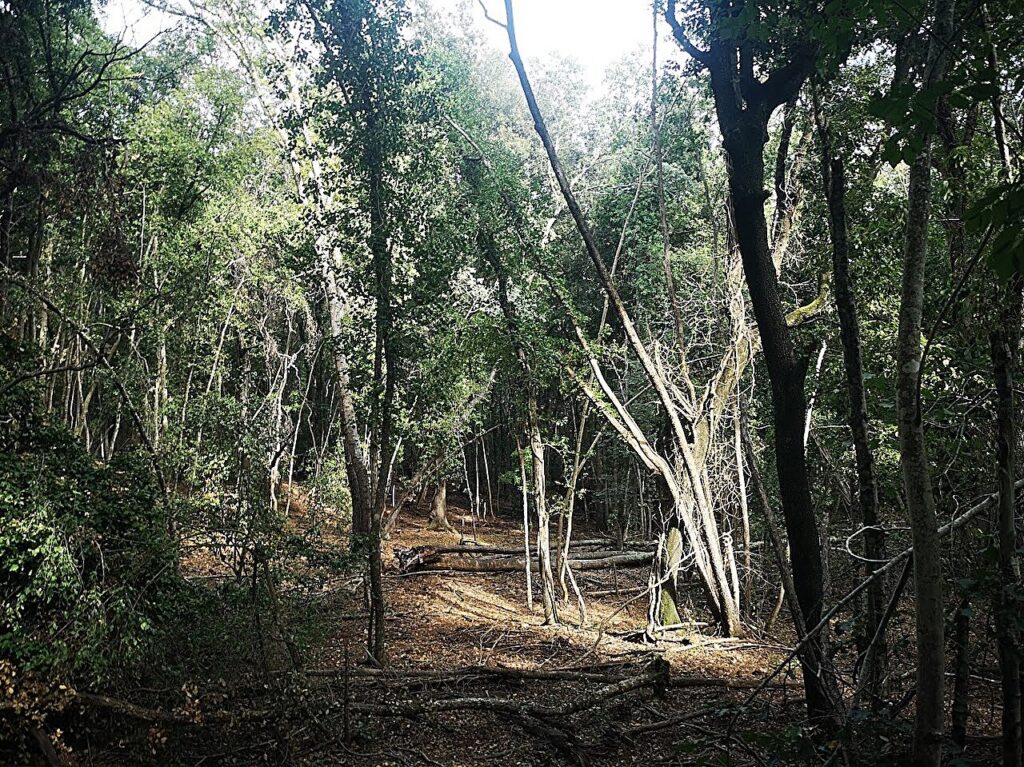
According to new research, Mediterranean forests that are allowed to grow naturally within strictly protected areas can remain up to 2°C cooler during summer heat waves compared to actively managed woodlands. This finding suggests that passive forest restoration could be a key strategy for mitigating the impacts of rising temperatures and climate extremes throughout southern Europe.
The study, published in Agricultural and Forest Meteorology, is the result of a joint collaboration between researchers from the Universities of Tuscia, Bologna, Messina, Milano, and the Carabinieri Forestali corp. It examines how different management regimes influence forest surface temperature across a coastal landscape in Tuscany, Italy.
Forests That Cool Themselves
Forests are known to moderate local climates by releasing moisture through evapotranspiration. However, until now, little was known about how management intensity affects this cooling effect in the Mediterranean—a region expected to warm 40% faster than the global average.
“Strictly protected forests act like natural air conditioners,” said lead author Dr. Francesco Solano. “Their taller, complex canopies store more moisture and create stable microclimates that help reduce the impact of heat waves.”
Prof. Alessandro Chiarucci from the University of Bologna added, “This cooling effect can provide fundamental support for components of biodiversity which are more sensitive to climate warming, making these sites true climatic refugia.”
The researchers utilized satellite-derived land surface temperature data from NASA’s Landsat 8 mission to map canopy-level temperatures across the landscape. They combined these measurements with information on forest structure, canopy height, vegetation moisture, and topography.
Cooling Rooted in Structure and Moisture
The analysis revealed that forest structure and canopy moisture were the main drivers of cooling. Taller trees, higher canopy density, and greater water content were all associated with lower surface temperatures. In contrast, forests closer to edges—where trees are more exposed to sunlight and wind—showed warmer conditions extending up to several hundred meters into the stand.
“This study confirms that forest structure matters,” said Prof. Gianluca Piovesan, University of Tuscia. “The more complex the canopy, the greater its ability to buffer against heat waves.”
The strictly protected site, Poggio Tre Cancelli Reserve, has been free from logging since 1961. Over more than six decades, its unmanaged holm oak forest has developed into a multi-layered canopy that shades the ground and maintains higher humidity. In comparison, the surrounding productive forests—regularly coppiced for firewood—have shorter trees and more fragmented cover, allowing greater heat penetration.
Implications for a Warming Mediterranean
The research highlights how forest protection and restoration can serve as effective nature-based solutions for climate adaptation in one of the world’s most vulnerable regions. The Mediterranean basin is already facing more frequent heat waves, more prolonged droughts, and accelerating biodiversity loss. Maintaining or restoring intact forests could help moderate local temperatures and safeguard species that depend on cooler, stable conditions.
According to the authors, the findings also emphasize the importance of expanding strictly protected areas and allowing natural regeneration to proceed.
“State forests like Poggio Tre Cancelli have shown that allowing some spaces to support natural processes can create the old-growth forests of tomorrow,” said Colonel Giovanni Quilghini of the Carabinieri Biodiversity Unit in Follonica.
“Today, additional state-owned woodlands are being designated for rewilding to lay the foundations for the future,” added General Raffaele Manicone, head of the Carabinieri Forestali Biodiversity Group.
The study suggests that unmanaged forests not only store more carbon but also create self-regulating microclimates that enhance their own resilience to heat and drought. These effects can reduce the risk of vegetation stress, soil drying, and fire susceptibility—critical issues for Mediterranean ecosystems.
A Natural Ally for Climate Resilience
The authors argue that strict protection, rewilding, and sustainable landscape management should be central to European climate and biodiversity strategies. While the European Union has proposed protecting 10% of its land under strict conservation by 2030, much of this area is currently concentrated in mountain regions. Extending protection to lowland and coastal Mediterranean forests could yield significant local cooling benefits.
“This study proves that strict protection, as promoted by the EU Green Deal, is vital for restoring degraded Mediterranean forests,” said Piovesan. “They provide a living example of how forest rewilding can effectively support the EU Nature Restoration Regulation’s goals for recovering degraded forest habitats.”
The study highlights that Mediterranean forests, which have been shaped by centuries of human use, still have the potential to recover their ecological functions when management pressures are reduced or removed. As the climate warms, these resilient forest refuges may become increasingly important not just for wildlife, but also for human well-being in heat-stressed landscapes.







